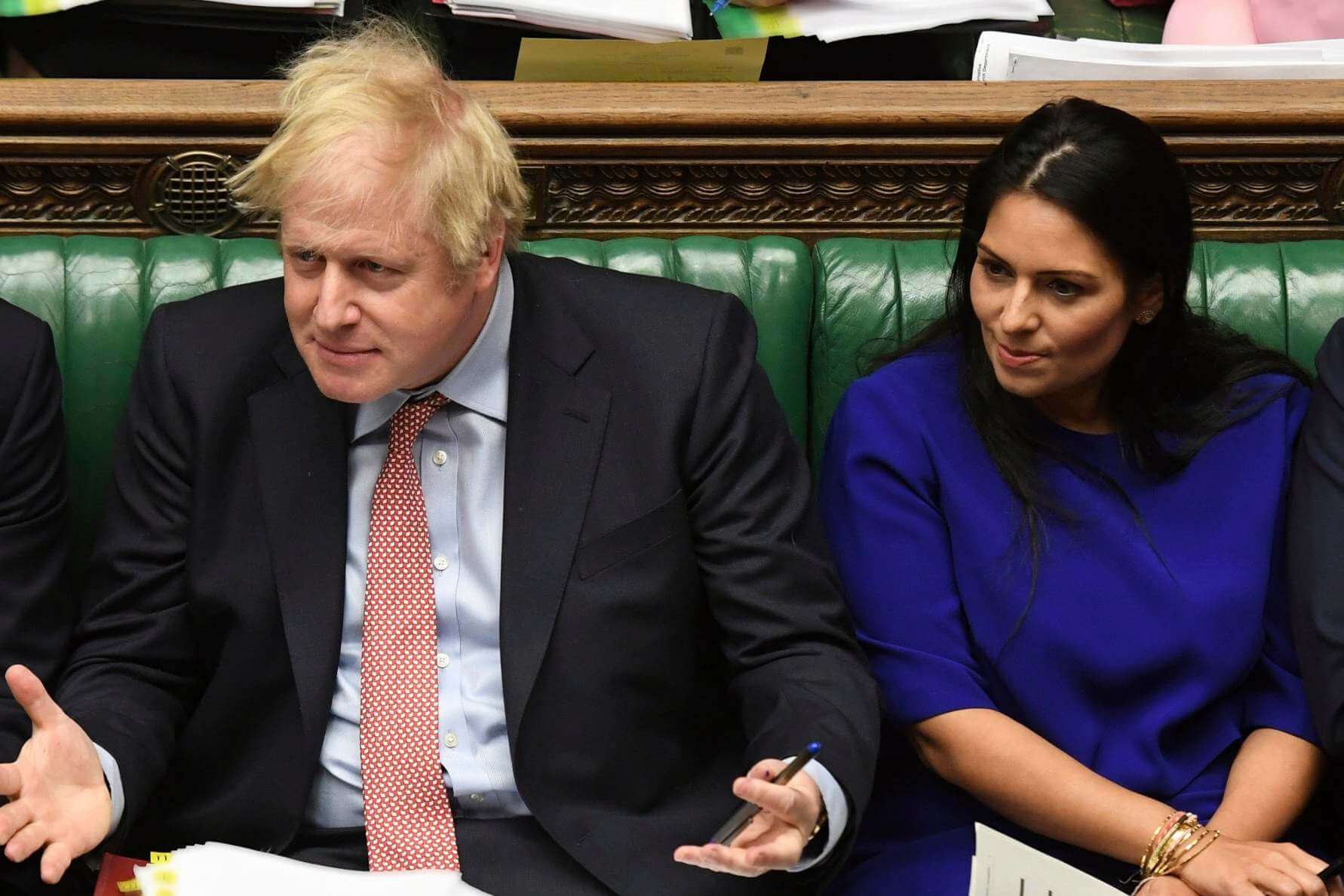Home Secretary Priti Patel remarked that the United Kingdom’s proposed legislation of a new points-based immigration system promotes a “high skill economy”. The proposal, labeled the Social Security Coordination (EU Withdrawal) Bill, will be placed in front of Ministers of Parliament (MPs) prior to becoming a law. The bill, which was first introduced in 2018, was repeatedly stalled under erstwhile PM Theresa May’s minority government. Under the incumbent PM Boris Johnson, who commands an 80-seat majority, the bill will enter the House of Commons for a second reading today.
The proposed system stipulates that immigrants must meet strict skills criteria. The Home Secretary has previously said, “We will no longer have the routes for cheap, low-skilled labour that obviously has dominated immigration and our labour market for far too long in this country.” Furthermore, additional points will be offered to individuals who can speak English to a certain standard, and those who have a job offer from an approved employer or a job that meets or exceeds the salary threshold of £25,600. Other points for consideration are if the candidates have certain qualifications that are in shortage in the country.
Ahead of today’s second reading, Patel said, “This historic piece of legislation gives the UK full control of our immigration system for the first time in decades and the power to determine who comes to this country.” She added that the “new points-based system is firmer, fairer, and simpler” and that it will “attract the people we need to drive our economy forward and lay the foundation for a high wage, high skill, high productivity economy”.
The bill repeals the European Union (EU) freedom of movement and outlines the future system for EU and non-EU nationals who move to the UK after the Brexit transition period ends on December 31, 2020. The bill signals that the UK is looking inwards, with Patel saying that the government wants “employers to focus on training and investing in a local work force rather than bringing in labour from abroad”.
Nevertheless, Johnson’s government remains cognizant of areas in which foreigners can assist and detailed that the government will “introduce a new fast-track NHS visa to ensure the NHS can continue to access highly skilled medical professionals from across the world”. At the same time, Patel announced that the visas for current NHS workers and their families have been extended.
Critics argue that while the measures to protect NHS workers are welcome, the ongoing coronavirus crisis has shown that low-paid sectors such as social care, delivery drivers and supermarket workers, which are often staffed by immigrants, are equally essential. Therefore, they posit that the government’s strict delineation of what it deems skilled or essential work ignores the vital efforts of such workers.
That being said, the proposed legislation does reduce the minimum salary threshold of £30,000 for skilled non-EU migrants to £25,600.
Proposed Post-Brexit Points-Based UK Immigration System To Be Discussed Today
Home Secretary Priti Patel foresees a transition to a “high skill economy”.
May 18, 2020

IMAGE SOURCE: JESSICA TAYLOR / AFP VIA GETTY IMAGESUK PM Boris Johnson (L) and Home Secretary Priti Patel
